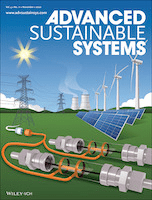
Advanced Sustainable Systems
Scope & Guideline
Driving Change Through Groundbreaking Research
Introduction
Aims and Scopes
- Sustainable Energy Solutions:
Research advancing renewable energy technologies, including solar, wind, and bioenergy, aimed at reducing carbon footprints and enhancing energy efficiency. - Advanced Materials for Environmental Remediation:
Development of novel materials and systems for the remediation of pollutants in air, water, and soil, focusing on photocatalysts, nanomaterials, and bioremediation techniques. - Smart Materials and Sensors:
Innovations in smart materials, including triboelectric nanogenerators and responsive hydrogels, aimed at energy harvesting, sensing, and environmental monitoring. - Circular Economy and Waste Valorization:
Studies on the recycling and upcycling of waste materials into valuable products, promoting a circular economy and sustainable resource management. - Electrocatalysis and Energy Storage:
Exploration of advanced electrocatalysts for hydrogen production, CO2 reduction, and high-performance energy storage systems, such as batteries and supercapacitors. - Biomaterials and Green Chemistry:
Research on biomaterials and green chemistry principles to develop sustainable alternatives for conventional materials and processes.
Trending and Emerging
- Photocatalytic Water Treatment:
A significant increase in research focusing on photocatalytic processes for water purification, using advanced materials like graphitic carbon nitride and metal-organic frameworks. - Nanotechnology in Energy Applications:
Emerging studies leveraging nanotechnology for enhanced energy storage and conversion, particularly in batteries and supercapacitors, showcasing innovative materials and structures. - Biodegradable and Sustainable Materials:
Growing interest in the development of biodegradable materials from renewable resources, with applications in packaging, textiles, and construction. - Smart Agriculture and Food Systems:
Research integrating smart technologies and sustainable practices in agriculture, including sensors for precision farming and biodegradable packaging solutions. - Electrochemical CO2 Reduction:
A surge in studies focused on the electrochemical conversion of CO2 into valuable chemicals and fuels, emphasizing the role of novel catalysts and reactor designs.
Declining or Waning
- Traditional Photovoltaic Technologies:
Research focused on conventional silicon-based solar cells has diminished as more innovative technologies, such as perovskite and organic photovoltaics, gain traction. - Conventional Wastewater Treatment Methods:
Studies detailing traditional methods for wastewater treatment are less frequent, as the journal shifts focus toward advanced materials and biotechnological solutions. - Basic Renewable Energy Systems:
Research on basic renewable energy systems, such as simple solar thermal systems, has waned in favor of more complex and integrated approaches that combine multiple technologies.
Similar Journals
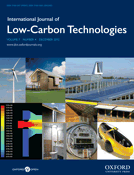
International Journal of Low-Carbon Technologies
Transforming research into impactful environmental action.International Journal of Low-Carbon Technologies is a premier, peer-reviewed publication dedicated to advancing the field of low-carbon technologies and sustainable practices. Published by OXFORD UNIVERSITY PRESS, this journal serves as a vital resource for researchers, professionals, and students alike, providing insightful research and innovative solutions for a sustainable future. With its ISSN 1748-1317 and E-ISSN 1748-1325, the journal is recognized globally, boasting an impressive impact in its categories, including a Q1 ranking in Architecture and Q2 rankings in both Civil and Structural Engineering and Environmental Science as of 2023. It is open access since 2014, facilitating the dissemination of knowledge to a wider audience, and encourages critical discourse on environmental sustainability across converging disciplines. The journal’s Scopus rankings reflecting its standing—ranked #23 in Architecture (88th percentile) and #130 in Civil and Structural Engineering—underscore its importance in driving forward the scientific agenda in low-carbon technologies. As we journey from 2007 towards 2024, the International Journal of Low-Carbon Technologies remains a cornerstone for research and dialogue in reducing carbon footprints and promoting resilient infrastructure.

EcoMat
Transforming challenges into opportunities in material science.EcoMat, published by WILEY, stands as a cornerstone in the interdisciplinary fields of Chemistry and Materials Science. Since its inception in 2019, this Open Access journal has quickly garnered a prestigious reputation, achieving Q1 category rankings across various fields, including miscellaneous chemistry and physical and theoretical chemistry. With Scopus rankings reflecting its impact—ranked #7 in both Physical and Theoretical Chemistry and Chemistry (miscellaneous)—EcoMat publishes cutting-edge research that addresses critical challenges in material sustainability and innovation. Researchers, professionals, and students alike benefit from the rich content accessible from its Hoboken, NJ location, exemplifying a commitment to enhancing scholarly communication and collaboration whilst advancing the frontiers of material sciences and chemistry.

Advanced Energy and Sustainability Research
Fostering Collaboration for Global SustainabilityAdvanced Energy and Sustainability Research is a leading open-access journal published by WILEY since 2020, dedicated to advancing knowledge and understanding in the realms of energy and sustainability. With an impressive impact factor and a commitment to high-quality, peer-reviewed research, this journal serves an international audience of researchers, professionals, and students passionate about addressing critical environmental challenges. The journal encompasses a wide array of topics within environmental science and energy fields, securing notable rankings in Scopus with top percentiles across several categories, including Ecology, Energy Engineering and Power Technology, and Waste Management. Given its open-access model, Advanced Energy and Sustainability Research facilitates the dissemination of cutting-edge research, enhancing accessibility and fostering collaboration within the scientific community. This journal not only plays a pivotal role in shaping public policy and industry practices but also aims to inspire innovative solutions for sustainable development in an increasingly complex world.

EnergyChem
Pioneering Innovations for a Greener Energy Future.EnergyChem is a premier academic journal published by ELSEVIER, dedicated to advancing the field of energy chemistry and its applications in sustainable technologies. With a strong focus on biomaterials and innovative chemistry solutions, the journal has established itself as a leading platform within the research community, boasting remarkable rankings such as Q1 in Biomaterials, Chemistry (miscellaneous), and Energy (miscellaneous) for 2023. Notably, it ranks 2nd in both Materials Science and Energy categories, reflecting the high caliber of research it publishes, which is crucial for tackling pressing global energy challenges. Since its inception in 2019, EnergyChem has been committed to open and accessible research, making it an invaluable resource for researchers, professionals, and students striving for cutting-edge insights in energy conversion and storage. With its target audience in mind, the journal encourages submissions that explore innovative materials, processes, and applications that will contribute to a sustainable energy future.
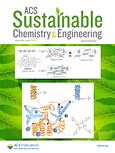
ACS Sustainable Chemistry & Engineering
Exploring the intersection of chemistry and environmental stewardship.ACS Sustainable Chemistry & Engineering is a premier journal published by the American Chemical Society, dedicated to advancing knowledge and innovation in the fields of sustainable chemistry and engineering. With an impressive impact factor and a consistent ranking in the Q1 category across various disciplines such as Chemical Engineering, Chemistry, Environmental Chemistry, and Renewable Energy, this journal serves as a vital resource for researchers, professionals, and students alike. Since its inception in 2013, the journal has been committed to publishing high-quality, peer-reviewed articles that address the critical challenges of sustainability in chemistry and engineering. With no open-access option currently available, the journal emphasizes the importance of premium scholarly communication. As the field continues to evolve, ACS Sustainable Chemistry & Engineering remains at the forefront of providing cutting-edge research that impacts our understanding and application of sustainable practices in the chemical sciences.
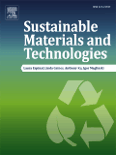
Sustainable Materials and Technologies
Advancing the Future of Sustainable InnovationSustainable Materials and Technologies is an esteemed journal published by Elsevier, focusing on pioneering research and innovative solutions in the fields of industrial engineering, materials science, and environmental sustainability. With a prestigious Q1 ranking in multiple relevant categories—including Industrial and Manufacturing Engineering, Materials Science, Renewable Energy, Sustainability, and Waste Management—this journal is positioned as a leading platform for disseminating high-impact research that addresses pressing challenges in material sustainability. Recognized for its rigorous peer-review process and commitment to academic excellence, Sustainable Materials and Technologies is dedicated to providing open access to groundbreaking studies and practical methodologies that drive forward the agenda for a sustainable future. Since its inception in 2014, the journal has been integral for professionals, researchers, and students who are engaged in the quest for innovative materials and technologies that minimize ecological footprints. Join a community at the forefront of sustainability science by contributing to and engaging with the transformative research published in this pivotal journal.
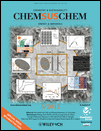
ChemSusChem
Advancing Sustainable Solutions Through ChemistryChemSusChem is a premier interdisciplinary journal, published by WILEY-V C H VERLAG GMBH, that focuses on the critical fields of Chemical Engineering, Energy, Environmental Chemistry, and Materials Science. Since its inception in 2008, the journal has consistently maintained a Q1 ranking across multiple categories, highlighting its role as a vital resource for researchers and professionals dedicated to advancing sustainable chemical processes and technologies. With an impressive impact factor, it ranks 12th in General Chemical Engineering and is highly regarded within its scopes, indicating the journal's commitment to publishing high-quality, innovative research that addresses global challenges in energy and environmental sustainability. Though it operates on a subscription model, its contributions are essential for those in academia and industry seeking cutting-edge developments in sustainable chemistry. As it approaches its convergence span through 2024, ChemSusChem continues to shape the future of sustainable chemistry, making it a must-read for students, researchers, and practitioners alike.

Clean Technologies
Connecting Minds for a Sustainable WorldClean Technologies, published by MDPI in Switzerland, is a pioneering open-access journal that has garnered significant recognition since its inception. Focusing on innovative solutions and practices for sustainability, it aims to serve the interdisciplinary field of clean technology while addressing pressing environmental challenges. With an impressive impact factor evidenced by its Q2 ranking in Environmental Science (miscellaneous) and Q3 in Global and Planetary Change, as well as a Scopus rank of #43 among a competitive pool of journals in these fields, Clean Technologies is positioned as a vital resource for researchers, professionals, and students alike. As a forward-thinking platform with open access since 2018, the journal emphasizes the dissemination of high-quality research, fostering collaboration and innovation in the quest for sustainable development. Located at ST ALBAN-ANLAGE 66, CH-4052 BASEL, SWITZERLAND, it also provides a comprehensive digital archive that allows for easy access to cutting-edge studies and findings relevant to global sustainability efforts.
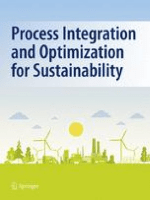
Process Integration and Optimization for Sustainability
Pioneering Research for a Sustainable PlanetProcess Integration and Optimization for Sustainability is an esteemed journal, published by SPRINGERNATURE, dedicated to advancing knowledge in the realms of chemical engineering, environmental science, and sustainable development. Established in 2017, this journal provides a platform for rigorous research that addresses the critical challenges of integrating and optimizing processes to achieve sustainability goals. With a commendable Q2 category ranking across various disciplines such as Chemical Engineering, Control and Systems Engineering, and Geography, along with impressive Scopus rankings, it has quickly established itself as a vital resource for researchers, professionals, and students. The journal's focus on innovative solutions for pollution control, renewable energy, and effective waste management aligns with global sustainability objectives. For academics seeking to publish their findings or stay abreast of the latest advances in these areas, Process Integration and Optimization for Sustainability is an indispensable resource that promises to foster impactful discussions and disseminate vital knowledge within the academic community.
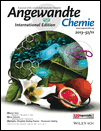
ANGEWANDTE CHEMIE-INTERNATIONAL EDITION
Exploring the Frontiers of Chemical InnovationANGEWANDTE CHEMIE-INTERNATIONAL EDITION, published by WILEY-V C H VERLAG GMBH, stands as a leading journal in the fields of Chemistry and Catalysis, holding a prestigious position with a Q1 ranking in both categories as of 2023. With an ISSN of 1433-7851 and an E-ISSN of 1521-3773, this esteemed publication has been an invaluable resource for the global scientific community since its inception in 1962. The journal's impact is further underscored by its remarkable Scopus rankings, where it occupies the 13th place among 408 journals in General Chemistry and the 4th place among 68 in Chemical Engineering - Catalysis, marking it in the 96th and 94th percentiles, respectively. Although it does not offer Open Access, ANEWANDTE CHEMIE-INTERNATIONAL EDITION remains essential for researchers, professionals, and students seeking to stay abreast of cutting-edge developments and innovations in chemical sciences. Its comprehensive scope and rigorous peer-review process ensure that only the highest quality research finds its way to publication, contributing significantly to the advancement of chemistry worldwide.